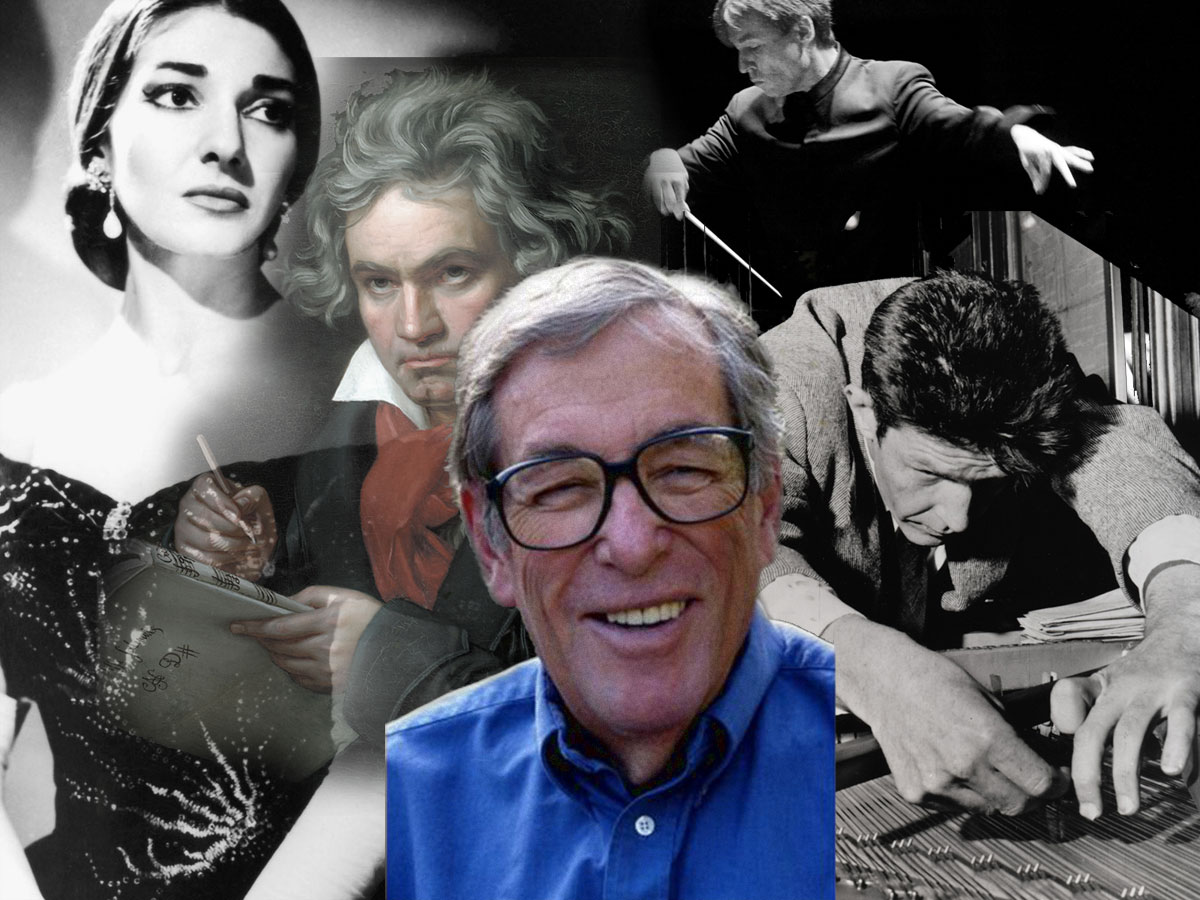|

Alan
Rich
1924-2010
It
wasnÕt just by dint of his incredibly long career in music that Alan Rich
deserved the title Dean of American Music Critics. When he passed away on
April 23 at the age of 85, he left behind a cultural legacy that owed as
much to his enormous depth of experience as to his razorlike gift for
spotting the issues in the classical, opera and new-music spheres he
explored. The pivotal issue, he knew, was whether or not the music
mattered.
I was Alan RichÕs editor at the L.A. Weekly for 10 years;
his
last writing for publication was for bluefat.com. At the Weekly, once or twice a week weÕd
go over his copy and iron out the kinks. Quite often IÕd object to a bit of
odd syntax or his occasional repetition of a word, or IÕd suggest that he was
perhaps being a bit of a crabby apple, too harshly condemning in his
evaluation of an artistÕs shaky performance.
ŅIt
doesnÕt bother me,Ó was his standard response. I learned to live with it.
What
bothered him was mediocrity, or, even worse, lack of imagination. Rich
pulled few punches when he felt it was time to flatten inflated egos and
pomposity. And he did this not just because heÕd rolled out of bed on the
wrong side, but because he really believed that his greatest contribution
to the art of pushing the music forward was his ability to speak the truth
about its glories and miseries, whether we liked it or not.
Rich was one of your cultural coal canaries; he remained
prescient right up to the end. Somewhere along the line he acquired a
reputation as a gadfly, a status he thoroughly enjoyed. HeÕd been
radicalized personally and artistically by his experiences as a student at
Berkeley in the 1940s, where he rubbed shoulders with many of the future
giants of the new music, including Lou Harrison, John Cage and
Harry Partch. He never lost his passion for the new and pioneering
ŅseriousÓ music, and helped promote a long list of moderns including Steve
Reich, Philip Glass and
Terry
Riley,
along with his avid support of Esa-Pekka Salonen and Gustavo Dudamel. And he
dug Radiohead.
Alan didnÕt write to be liked, thatÕs for sure. Yet whether
he was effusively praising an artist or tearing them apart limb from limb,
he did so with an enormous amount of credibility; he literally had history
to back him up. (The story is that heÕd actually attended the premiere of
Bela BartokÕs Concerto for Orchestra with the Boston Symphony Orchestra in
1945, when he was a student at Harvard.) Alan told me privately, however,
that his biggest joy ŠŠ outside of the music itself ŠŠ was the idea that he
had provoked readers to think for themselves.
Bon voyage, Alan Rich. And thank you.
ŠŠ
John Payne
|